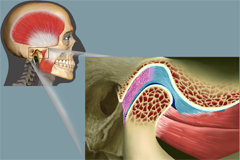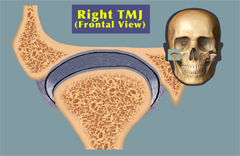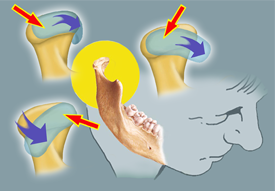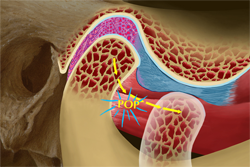| |
|
 |


The importance of understanding the normal and dysfunctional anatomy of the temporomandibular joints in the management of TMJ disorders cannot be overstated. Our current understanding of TM joint function has dramatically increased over the past 30 some years, primarily because of improved imaging techniques. The histology and physiology of the articular tissues also provide important insights regarding TMJ health and disease, but they are not covered in this material.
For those who desire to broaden their understanding, we have provided a comprehensive description of the current knowledge about the function and dysfunction of these highly unique joints.
 

 


|
|





